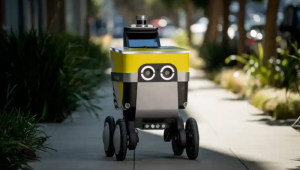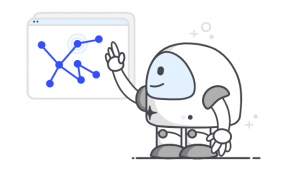Strange Big Data: Humans vs. Machines
![]() Alongside the rise of technology spreads the dilemma that computers might one day take over and enslave humanity. That may sound a bit beyond the pale, but perhaps it can actually happen. We’ve seen it in sci-fi movies such as The Matrix, Blade Runner, and Space Odyssey. But before we all lose our nerves thinking that our beloved technology may dominate us one day, let’s take a look at how close technology currently matches our own human capabilities.
Alongside the rise of technology spreads the dilemma that computers might one day take over and enslave humanity. That may sound a bit beyond the pale, but perhaps it can actually happen. We’ve seen it in sci-fi movies such as The Matrix, Blade Runner, and Space Odyssey. But before we all lose our nerves thinking that our beloved technology may dominate us one day, let’s take a look at how close technology currently matches our own human capabilities.
In this infographic by Dell, computers and humans are compared based on twelve aspects: vision, hearing, noise, smell/taste, touch, speed reading, memorization, games, power consumption efficiency, power storage, operating temperature, and viruses. In these twelve rounds, humans managed to win eight of them. Well seven actually, because one of the rounds declared a tie. Nevertheless, we can’t be too confident in human evolution, progressing at a slow pace compared to computers, which seem to dramatically develop in a very short time. We’re only ahead for now.
But technology achieving a controlling feat is way in the future. How about imagining yourself hopping into a time machine with a laptop and going back in time? Another infographic by Dell reveals the possibilities of bringing a single laptop to the past. If you stop in prehistoric age, your laptop will probably be hailed as magic and you could become deity (as long as you have battery power). You can run the entire Mesopotamian economy with a single spreadsheet, or use astronomy software to predict an eclipse, and declare yourself a wizard. In the advent of the Roman Empire, you can help them create a city plan in less than 24 hours. Or if you go not so far back to 1945, you can replace the 9,000 code breakers in Bletchly Park, England with your laptop and a simple java script.
See the entire Strange Big Data Series on Pinterest and Springpad!
.
Humans have also been compared to computers when it comes to predictions for the stock exchange. Dr. John Bates believes that machines will be most profitable because they has the capacity to “self-evolve,” finding new trading patterns in an organic way. On the other hand, Renee Coyle of Forefactor contends that humans are indispensable factors in trading stocks, given that we created machines. “We have to remember that machines are created by man and that there is always someone at the end of the line creating algorithms, creating all the various technologies. It will always come back to man, no matter what. Man will have built in his or her own set of trading strategies, usually based on market analytics,” she told CNBC.
We also have interesting an article from The Wall Street Journal detailing how well the American economy has recovered while so many people are still jobless. This is because companies are racing to upgrade their software and equipment, while hiring less people as they’re able to do more with less and stay on budget. Spending on upgrades rose by 31 percent since 2009. One such company on an upgrading heyday is Sunny Delight, which spent a total of $70 million to modernize five of its juice factories in the US.
A message from John Furrier, co-founder of SiliconANGLE:
Your vote of support is important to us and it helps us keep the content FREE.
One click below supports our mission to provide free, deep, and relevant content.
Join our community on YouTube
Join the community that includes more than 15,000 #CubeAlumni experts, including Amazon.com CEO Andy Jassy, Dell Technologies founder and CEO Michael Dell, Intel CEO Pat Gelsinger, and many more luminaries and experts.
THANK YOU













